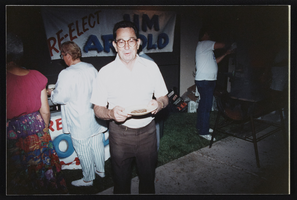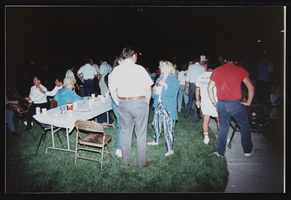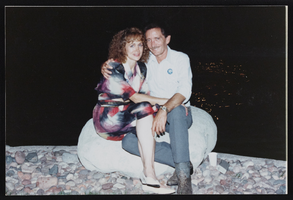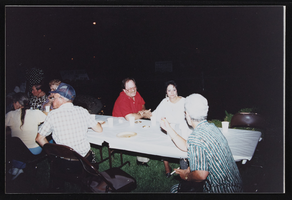Search the Special Collections and Archives Portal
Search Results

Culinary Union Election: Victory party, Las Vegas (Nev.), 1990 June (folder 1 of 1), image 13
Date
1990-06
Description
Arrangement note: Series III. Internal: Work
Image

Culinary Union Election: Victory party, Las Vegas (Nev.), 1990 June (folder 1 of 1), image 14
Date
1990-06
Description
Arrangement note: Series III. Internal: Work
Image

Culinary Union Election: Victory party, Las Vegas (Nev.), 1990 June (folder 1 of 1), image 15
Date
1990-06
Description
Arrangement note: Series III. Internal: Work
Image

Culinary Union Election: Victory party, Las Vegas (Nev.), 1990 June (folder 1 of 1), image 17
Date
1990-06
Description
Arrangement note: Series III. Internal: Work
Image

Culinary Union Election: Victory party, Las Vegas (Nev.), 1990 June (folder 1 of 1), image 18
Date
1990-06
Description
Arrangement note: Series III. Internal: Work
Image

Culinary Union Election: Victory party, Las Vegas (Nev.), 1990 June (folder 1 of 1), image 19
Date
1990-06
Description
Arrangement note: Series III. Internal: Work
Image

Culinary Union Election: Victory party, Las Vegas (Nev.), 1990 June (folder 1 of 1), image 20
Date
1990-06
Description
Arrangement note: Series III. Internal: Work
Image

Culinary Union Election: Victory party, Las Vegas (Nev.), 1990 June (folder 1 of 1), image 22
Date
1990-06
Description
Arrangement note: Series III. Internal: Work
Image

Culinary Union Election: Victory party, Las Vegas (Nev.), 1990 June (folder 1 of 1), image 23
Date
1990-06
Description
Arrangement note: Series III. Internal: Work
Image

Culinary Union Election: Victory party, Las Vegas (Nev.), 1990 June (folder 1 of 1), image 25
Date
1990-06
Description
Arrangement note: Series III. Internal: Work
Image
Pagination
Refine my results
Content Type
Creator or Contributor
Subject
Archival Collection
Digital Project
Resource Type
Year
Material Type
Place
Language
Records Classification
